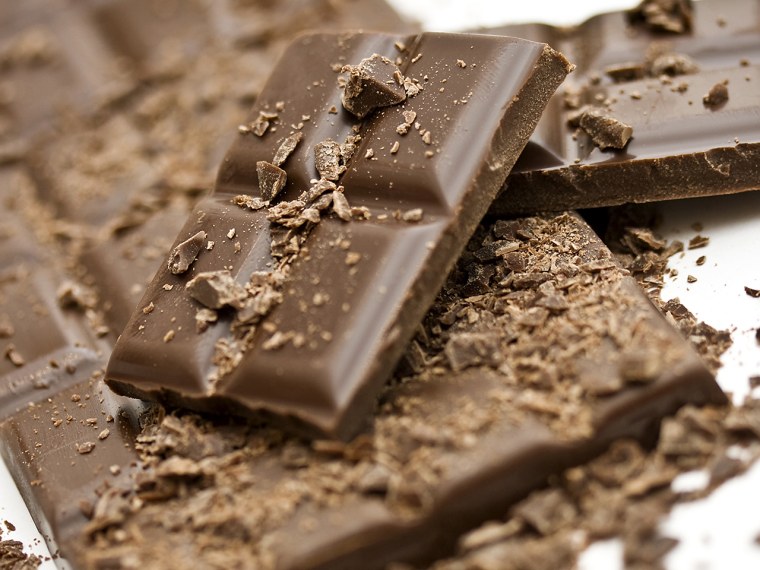Can eating chocolate every day help keep your brain healthy? According to a new study published in Neurology, this advice might help a small, select group of older Americans. But it’s not a reason to increase how much chocolate you eat daily in the hope of boosting your brain power. And the study suggests that dark chocolate might be no better than any other kind, at least when it comes to your brain.
To compare brain and cognitive changes in healthy, aging people and those with vascular disease, researchers -- funded by the National Institute on Aging and the National Heart, Lung, and Blood Institute -- looked at 60 people ages 65 and older without dementia, but with controlled hypertension and/or controlled diabetes. Because prior studies with flavanol-rich cocoa have been shown to improve blood flow, a “chocolate challenge” could shed more light on the connections between impaired brain blood flow and changes in cognition in the aging brain.
Before and after a 30-day trial, all subjects had cerebral blood flow velocity measured and a cognitive assessment. After the baseline measurements, subjects were randomized to consume daily either a flavanol-rich cocoa drink or a flavanol-poor cocoa drink. They were instructed to consume two packets of cocoa powder daily. The high flavanol group ingested 1218 mg/day (609mg/packets) while the low flavanol group consumed 26 mg/day (13 mg/packet). Because the cocoa provided about 200 extra calories each day, subjects were instructed to account for these extra calories, to avoid weight gain and support diabetes control. They were also asked to refrain from consuming chocolate from any other sources.
After 30 days of cocoa consumption, researchers saw improved “neurovascular coupling” (NVC) and cognitive function only in those individual who had already had baseline impairments. NVC refers to the close functional and spatial relationship between neuronal activity and blood flow in the brain. For those with intact NVC, no changes in cognition were observed after 30 days of the cocoa challenge.
It is well documented that brain activity is linked to the delivery of glucose and oxygen (like all other cells). And an increase in metabolic activity by the cells results in an increase in blood flow to the brain area. NVC has been shown to be associated with multiple vascular illness.
Perhaps surprisingly, no differences were noted whether the flavanol-rich or flavanol-poor cocoa was consumed. Earlier studies suggest that flavanols are a key component accounting for the vascular changes associated with chocolate intake. A likely conclusion, provided by the authors, is that some other component in cocoa is accounting for the observed results.
While cocoa might provide some cognitive benefit to those with impaired brain blood flow, this result only impacts a very narrow group of people – those with impaired brain blood flow. More research is needed before recommending an extra 200 calories in daily cocoa to boost cognition.
And the observation that the flavanol content of the cocoa had no effects raises the question of whether flavanol-rich dark chocolate is a “better” choice than low-flavanol milk chocolate for the general population. Maybe it’s time to think of chocolate as a tasty indulgence, consumed in moderation, and out of the realm of “health food”.
